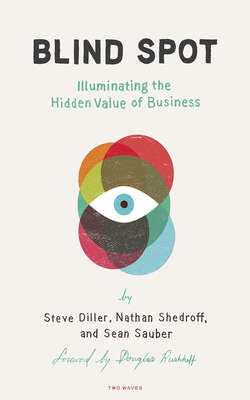Читать книгу Blind Spot - Nathan Shedroff - Страница 8
На сайте Литреса книга снята с продажи.
CHAPTER 1 A World of Hidden Value
ОглавлениеOn July 14, 2014, an Engadget editor named Ryan Block and his wife called to cancel their Comcast cable and Internet service. During an 18-minute phone call (only 8 of which were recorded), a Comcast customer service representative badgered them with questions and refused to do the simple task they asked. The entire conversation consisted of exchanges like the following:
Block: “I’d like to disconnect.”
Service rep: “Help me understand why you don’t want faster Internet.”
Block: “Help me understand why you just can’t disconnect us.”
Service rep: “Because my job is to have a conversation with you…about keeping your service.”
This went on until the bemused Block wondered aloud, “Am I being punked?”
For those of you outside of North America, Comcast is a cable TV and Internet company that frequently tops the lists of the worst companies on the continent. Its most obvious problem is the terrible relationships it has with its customers. Many people simply hate dealing with the company.
Part of the blame falls on the industry: almost all cable and Internet companies in the United States fare poorly in customer surveys. Still, part of the blame has to fall on the company itself. Comcast offers an array of conflicting and confusing promotions. The deals routinely end 12 months after they begin, triggering huge increases in prices that surprise customers. Then, if you try to disconnect, the company makes you cancel over the phone, where you’ll find a customer service rep trained to do nearly anything to keep you as a customer. And after you cancel their services, the company often doesn’t stop billing your account until you physically return equipment to the nearest store, which may not be nearby.
Worse still, customer service reps often act like Block’s did. He may as well have been a robot—he had a script, and he stuck to it. His compensation was likely based on how many customers he could prevent from discontinuing service. In an ordinary interaction, people respond to one another. If a person seems upset, you don’t start telling jokes. If they’re happy, you’re happy for them. You build relationships using empathy, not by stubbornly saying the same thing over and over, regardless of what the other person says.
Over time, emotional experiences add up. If you have one interaction after another that leaves you feeling worse, it will result in a bad relationship. When that happens, you talk about the company in the same way that you talk about a person you can’t stand: obtuse, frustrating, and annoying. You can actually come to hate a business. And when you get a chance to get rid of its services, you dump it, just as you might dump a friend or romantic partner. (The same is true in the positive, too: you might love and admire a company based on the kinds of interactions you have with them.)
That said, you might ask why Comcast is still in business. Because it’s lucky. It has a virtual monopoly in some regions and competes with only one or two rivals in the rest of the regions. Its competitors all engage in the same unpleasant practices, so consumers have to pick their poison. But most companies have no such luxury. If Comcast were a neighborhood restaurant, it wouldn’t last more than a few months. Within days of opening, anyone who went there would tell everyone else to stay away.
In fact, most small businesses understand that their customers have a series of experiences that turn into a relationship. They know that developing positive relationships is critical to their success. They have to learn their customers’ names, understand their preferences, and know what their customers want before they say so. Their business has to be positive, upbeat, and sensitive. Being good at what they do simply isn’t enough. They have to know how to give and take in a two-way conversation. They have to care.
